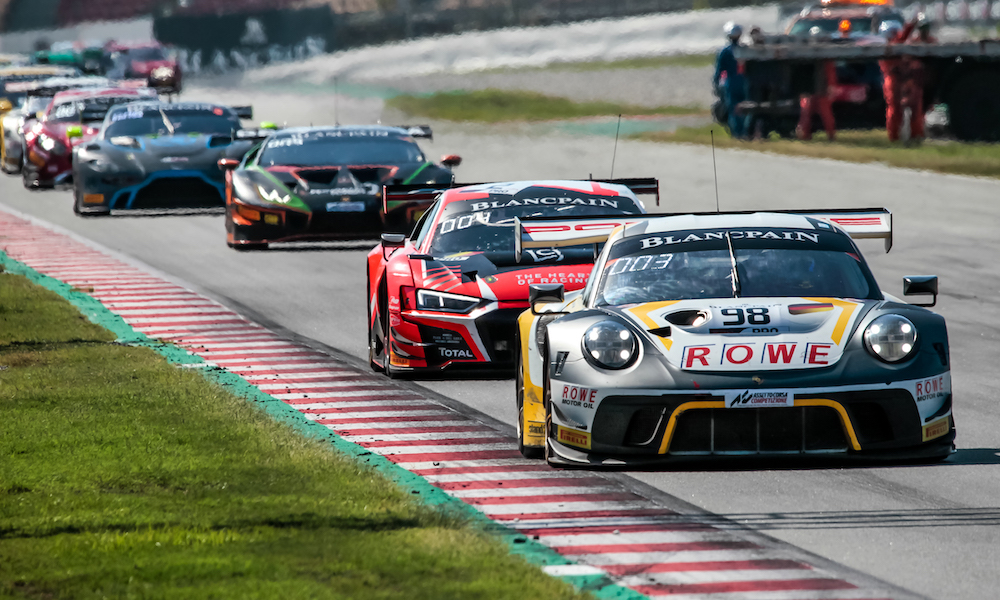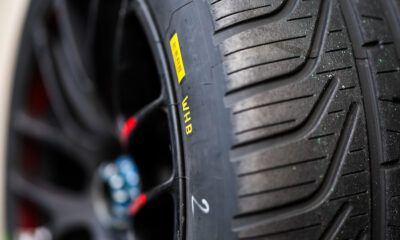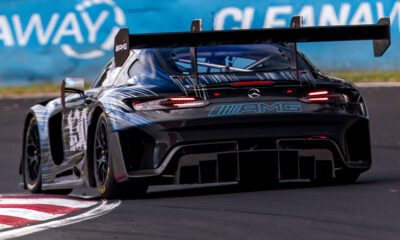
Photo: Patrick Hecq/SRO
Manufacturers have pledged initial support for the next set of FIA GT3 regulations that will come into force at the start of 2022.
Representatives from BMW, Porsche, Aston Martin and Ferrari have voiced positivity over the outcome of extensive discussions about the future of the category.
The 2022 regulations were approved by the FIA World Motor Sport Council on Dec. 4 and have been distributed to manufacturers despite not yet being publicly available.
It appears that the rulebook will be more of an evolution rather than a drastic departure from its current state. The latter option had initially been proposed in multiple forms by the FIA throughout last year.
Instead, Sportscar365 understands that a more liberal use of technical waivers will be utilized to continue the diversity in the category.
BMW was the first manufacturer to act on the approval of the regs with the confirmation that it will be going ahead with its M4 GT3 program.
The German marque would have been unable to enter an M4-based car under the current GT3 regs because the road version of the model is based on a four-door production platform.
However, BMW successfully pushed for the rules to be opened up to allow such cars to compete.
Its motorsport director Jens Marquardt told Sportscar365 that GT3 cars will continue to be homologated under a single platform in 2022.
“There have been so many discussions and we’ve been involved in all of them,” he said. “The FIA has run a pretty transparent process on that.
“A lot of the cars that are now considered GTs are super sports cars. Is a super sports car a GT? People always come up and say that BMW isn’t a super sports car and so it shouldn’t be there.
“But a BMW is a GT car, and it is there because it’s a GT class. I would like to turn the discussions around sometimes and say, ‘GT has always been there, super sports cars have been somehow integrated, and now supers sports cars would like to define what the rules for a GT are…’
“I think the FIA really made a good effort and a good job to get regs together that allow for manufacturers that have sporty GT or super sports cars to be homologated as a race car.
“They have found a way to get this all together within the performance windows that you have to hit. They can then do the BoP afterward to make the whole thing work.”
Porsche and Aston Martin have also voiced approval at how the regulations were reached.
A representative from Ferrari, meanwhile, described the changes as more “bureaucratic” than substantial, citing them as an evolution rather than a revolution.
Porsche’s director of factory motorsport, Pascal Zurlinden, told Sportscar365 that all manufacturers were satisfied with the outcome of FIA technical working group meetings.
“There was a lot of discussion with all the manufacturers involved and now I think they have found the best compromise and we are all happy with what came out,” he said.
“There was full transparent work together in the working groups, so we are happy with what came out because that’s what we discussed.
“I would say now it is a continuation from what we currently have, just put on paper. We could build the same cars we have now with the same regulations for GT3.”
Aston Martin Racing and Prodrive managing director John Gaw echoed Zurlinden’s sentiments about the transferability of the regulations from what is currently in place.
“I think it’s exactly what we expected it to be,” he told Sportscar365. “There’s some exciting stuff on the thought process on electric as well for GT [in 2025 regs].
“GT3 is pretty solid. You need stability in that area because customers don’t buy a new car every year. They want to buy a car for a five-year period.
“It’s a big investment for GT3 now. By the time you by a car and all of the parts and everything. I think there’s good stability.”
Ferrari technical director Ferdinando Cannizzo has described the new regulations as “more structured” whilst retaining the philosophy of the current technical rules.
He explained that manufacturers will not need to build new cars for 2022.
“Not specifically for the new coming regulation,” Cannizzo told Sportscar365. “As usual, manufacturers will decide depending on the timing of their new models.
“Definitely you do not need to decide on a new GT3 car because of the new regulations.”
When asked if the new regulations will be sustainable cost-wise, Cannizzo said: “It’s definitely sustainable. If you open the regulations more, in terms of bodywork for example, clearly, we start to be unsustainable.
“Although the new regulation allows the same freedom of the current regulations, if properly managed by FIA, the new regulations shouldn’t lead to more development.”
John Dagys contributed to this report
























